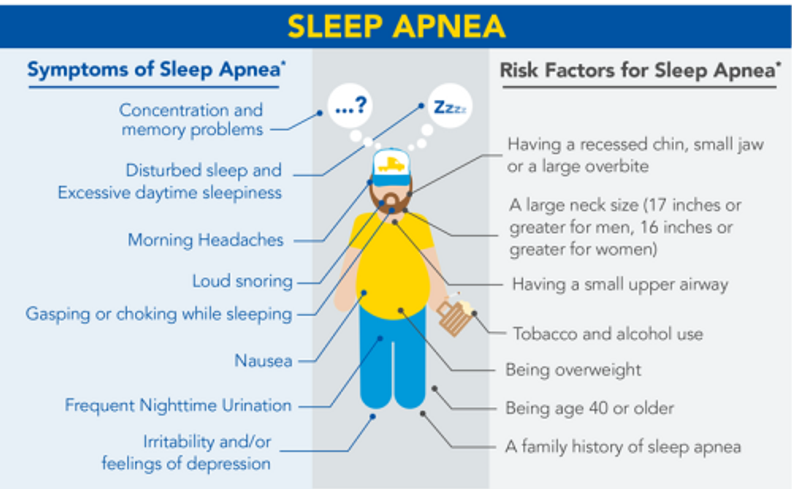In the realm of transportation, truck drivers are the unsung heroes who keep the world moving. These dedicated individuals spend countless hours on the road, ensuring goods reach their destinations promptly. Yet, behind the scenes, a potentially serious health issue looms – sleep apnea. This condition, which affects millions worldwide, poses unique challenges for those in the trucking industry. In this article, we’ll delve into the relationship between truck drivers and sleep apnea, shedding light on the issue and discussing possible solutions.
Understanding Sleep Apnea: The Silent Threat
Sleep apnea is a sleep disorder characterized by interruptions in breathing during sleep. These interruptions, known as apneas, can last from a few seconds to minutes, leading to disrupted sleep patterns. The most common type of sleep apnea is obstructive sleep apnea (OSA), which occurs when the muscles in the throat relax excessively, causing the airway to become blocked.
Truck drivers are at an elevated risk of developing sleep apnea. Long hours behind the wheel, irregular sleep schedules, and a lack of physical activity can contribute to weight gain and other factors that increase the likelihood of sleep apnea. However, recognizing the signs and seeking treatment can make a significant difference in the lives of these drivers.

The Consequences of Untreated Sleep Apnea
Untreated sleep apnea can have serious consequences, affecting not only the driver’s health but also road safety. The fatigue and cognitive impairment caused by sleep apnea can lead to decreased reaction times, impaired decision-making, and even nodding off at the wheel. This not only puts the driver’s life at risk but also endangers other road users.
Fortunately, awareness about sleep apnea’s impact on truck drivers is growing, prompting the industry to take action and implement preventive measures.
The Road Ahead: Addressing Sleep Apnea in Trucking
Addressing sleep apnea in the trucking industry requires a multi-faceted approach. Education and awareness campaigns can help drivers recognize the signs of sleep apnea and encourage them to seek medical assistance. Trucking companies can collaborate with medical professionals to implement regular health assessments and screenings. Additionally, lifestyle modifications, such as maintaining a healthy weight, staying physically active, and adopting consistent sleep patterns, can significantly reduce the risk of developing sleep apnea.
As we appreciate the vital role truck drivers play in our society, it’s essential to prioritize their health and well-being. By raising awareness about sleep apnea and implementing preventive measures, we can make strides towards safer roads, healthier drivers, and a more sustainable trucking industry.
In conclusion, the relationship between truck drivers and sleep apnea is a critical concern that deserves attention. With the collaboration of the trucking industry and medical professionals, we can pave the way for a safer and healthier future for truck drivers and everyone who shares the road with them.
